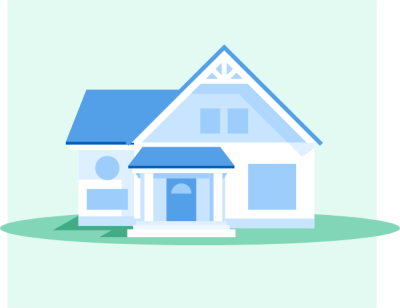How Much Mortgage Can I Get With $120,000 Salary?




Here’s one way to estimate how much mortgage you can get with a salary of $120,000:
Start with your monthly income. $120,000 divided by 12 months is $10,000 per month.
Find the top of your budget (if you don’t, your bank will). No more than 39% of your income can go toward your mortgage payment, including property taxes and utilities, according to a lending guideline called gross debt service ratio. In this case, a monthly salary of $10,000 multiplied by 0.39 is $3,900.
Determine your price range. If you were approved for a 25-year mortgage with an interest rate of 4%, that $2,275 monthly payment translates into a home price of about $585,000 with a $50,000 down payment.
But these numbers may not apply to everyone who makes $120,000 per year.
How much can you afford?
Use NerdWallet's affordability calculator
Factors that affect how much you can afford
Your income is just one factor that affects the amount of mortgage you can get with a $120,000 salary.
Your credit score and interest rate
A person with a relatively high income could have bad credit, and a person with below-average income could have a strong credit record — it’s all about how reliably you’ve repaid borrowed funds in the past. Lenders typically offer their best mortgage interest rates to applicants with excellent credit scores — anything above 760, typically. A credit score that’s good but not great may result in a rate above the lowest advertised rates.
Taxes, insurance, maintenance and fees
Another reason the estimate may not apply to you is that it includes property taxes of $2,500 per year and about $200 in monthly utilities. Your housing-related expenses might be different depending on where in Canada you live.
Debt ratios
Lenders in Canada limit the maximum amount you can borrow based on two debt measurements.
Gross debt service ratio
No more than 39% of your income can go toward your mortgage payment, taxes and utilities.
Total debt service ratio
In addition, if you have other monthly debt payments (student loans, credit card payments), lenders won’t want the total of these payments plus any mortgage payment to exceed 40-44% of your income.
Your household budget
Forget about bank maximums: You’re the one that’s on the hook for the monthly payment. Toggling the variables above may prop up the amount of house you can afford a bit, but maybe you don’t want to stretch your budget as far as allowable. Life can throw curveballs, including unexpected rate changes when it’s time to renew your mortgage. Think about how to give your budget some breathing room.
Sample housing budgets
To illustrate how variables beyond income can affect how much mortgage you can get, consider two people with identical $120,000 incomes:
Person A | Person B | |
|---|---|---|
Annual salary | $120,000 | $120,000 |
Car payment | $0 | $500 |
Credit card debt payment | $0 | $250 |
GDS ratio limit | $3,900 | $3,900 |
TDS ratio limit | $4,400 | $3,650 |
This example doesn’t even take into account differences in credit scores. The better your score, the lower the rate you’ll get. Even if two people can afford the same monthly payment, the person with the better (higher) credit score can potentially afford a more expensive home if less of that monthly payment is going toward interest.
What you can do next
To get an answer more closely aligned to your situation, you’ll want to use a mortgage affordability calculator. An affordability calculator lets you control more variables when estimating mortgage payments.
If your estimated price range doesn’t match your hopes, here’s what you can do:
Improve your credit. Reducing or eliminating credit card debt is a good place to start.
Reduce set monthly expenses. For example, if you have a large monthly car payment, would you consider swapping for something less expensive?
Look elsewhere. Do you want a bigger budget to afford a certain neighborhood? Keep an open mind and expand your search. Tap the expertise of a real estate agent if you haven’t already.
Keep saving. More money in the bank is a great way to increase your options in the future.
Stay patient. Buying a home can be hard, and it doesn’t always happen right away. A drop in interest rates or a new job are just two examples of events that can change your prospects.
Learn how to apply for a mortgage
Your home buying journey goes through these five steps
DIVE EVEN DEEPER

